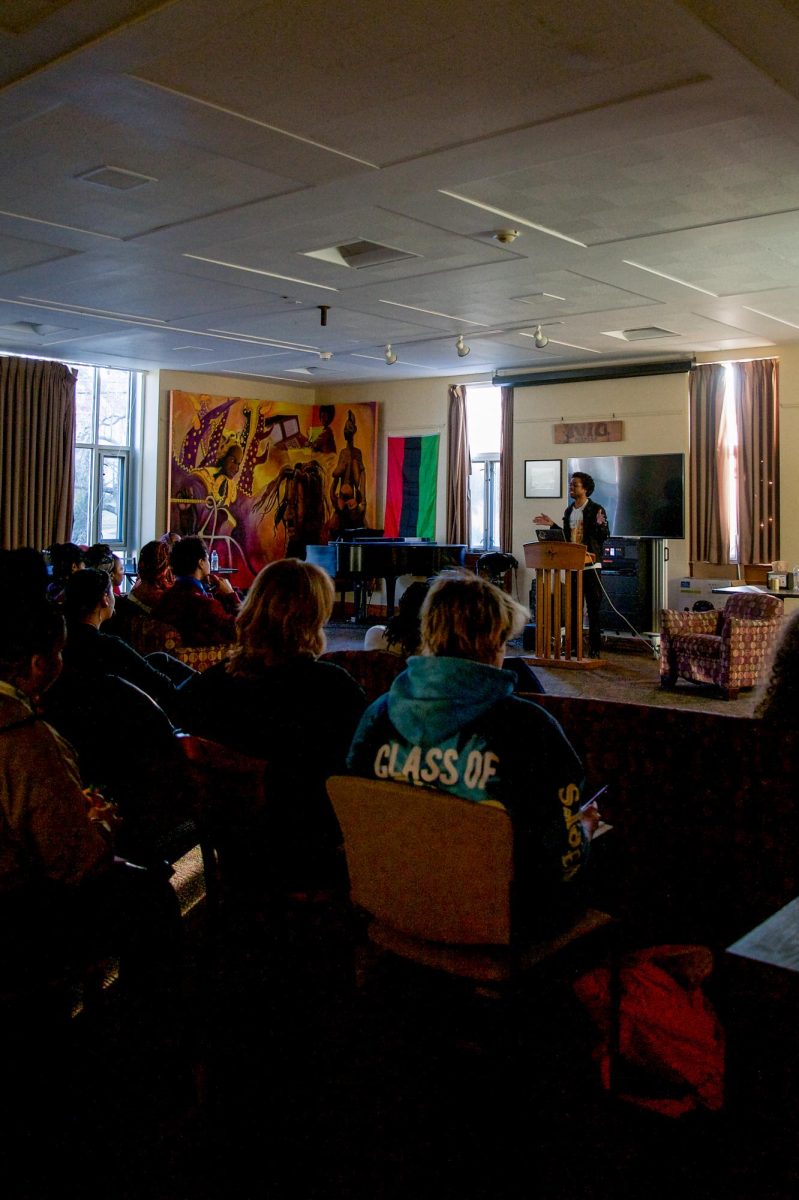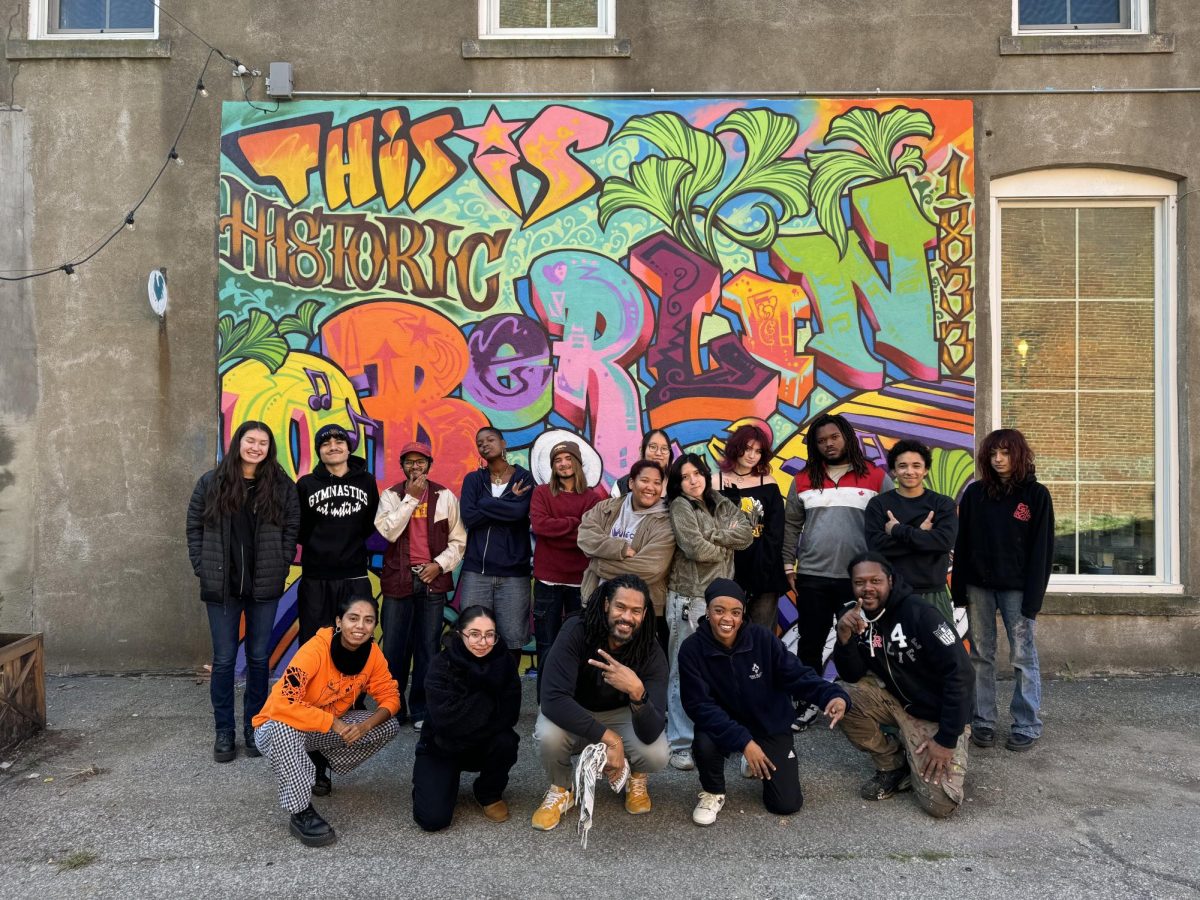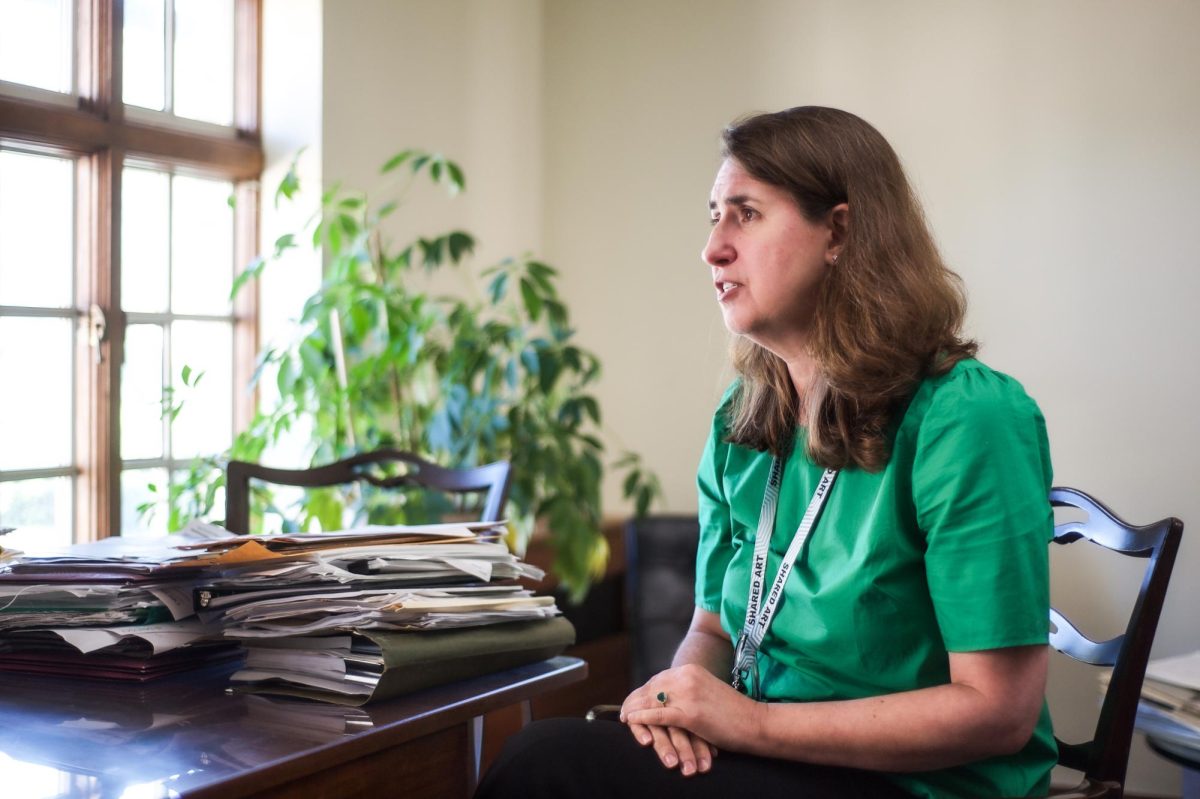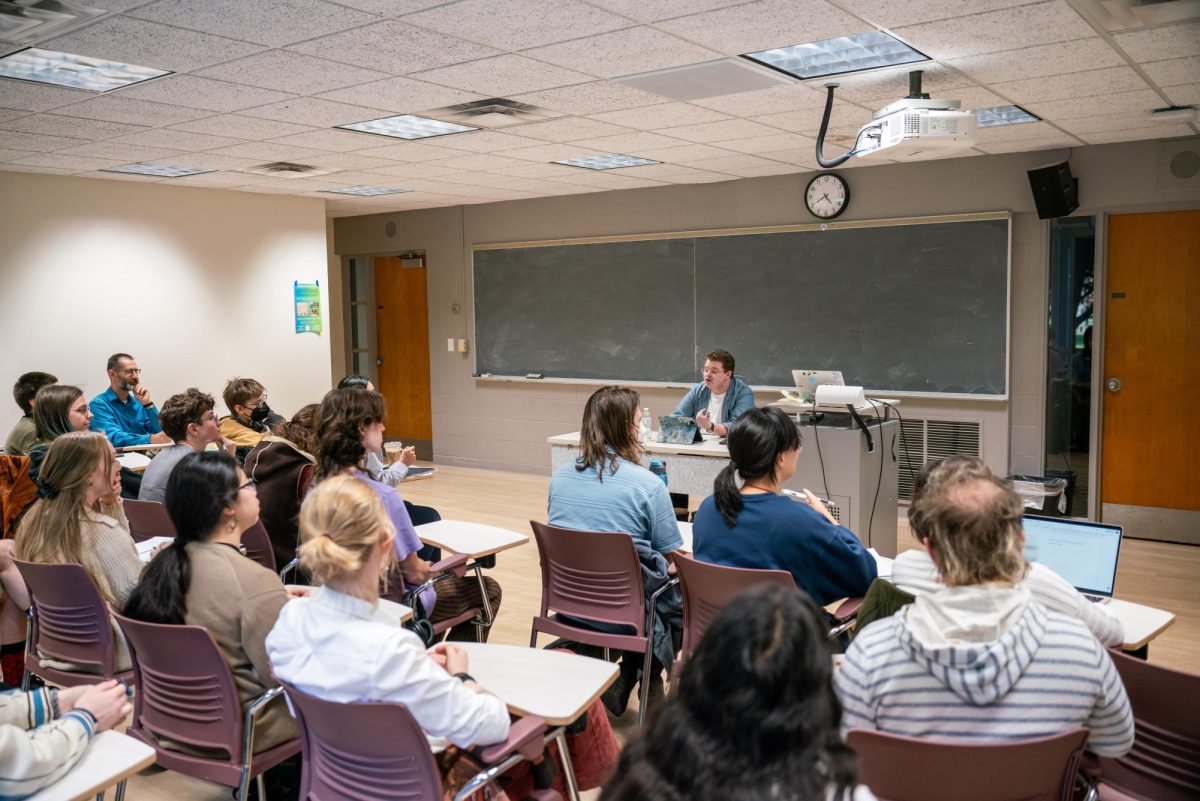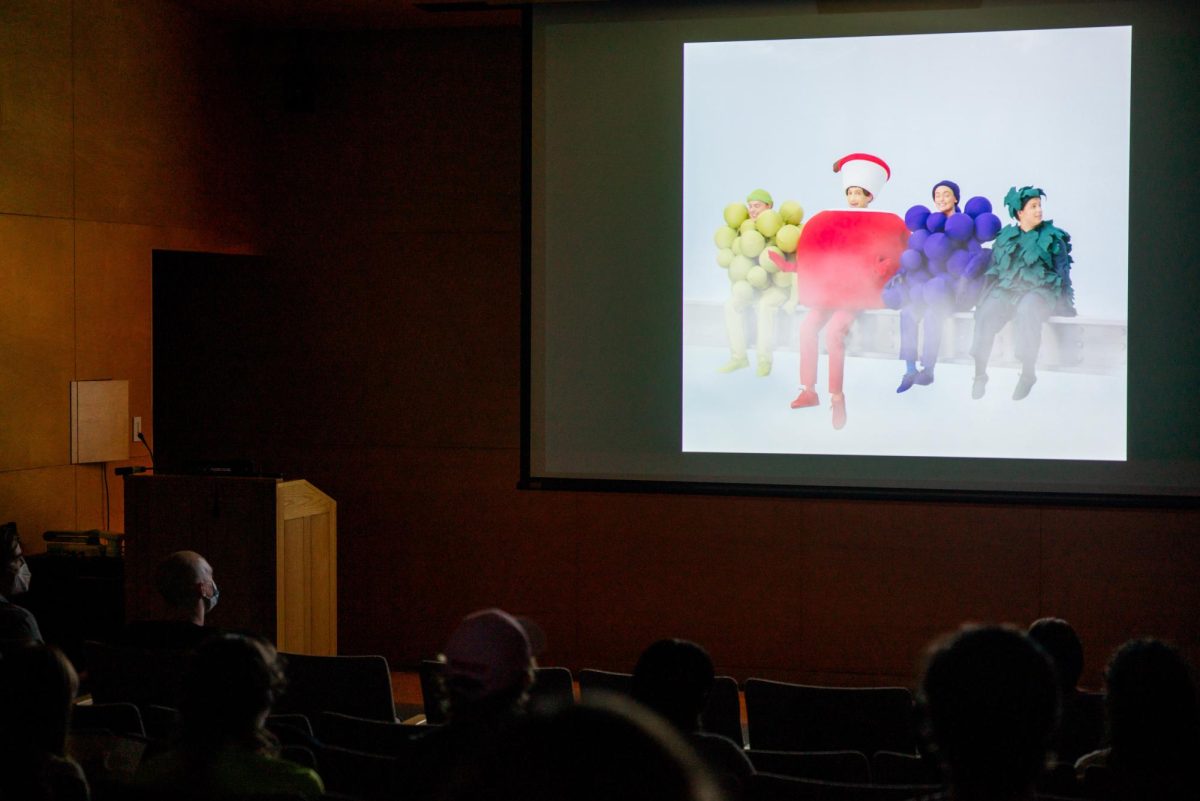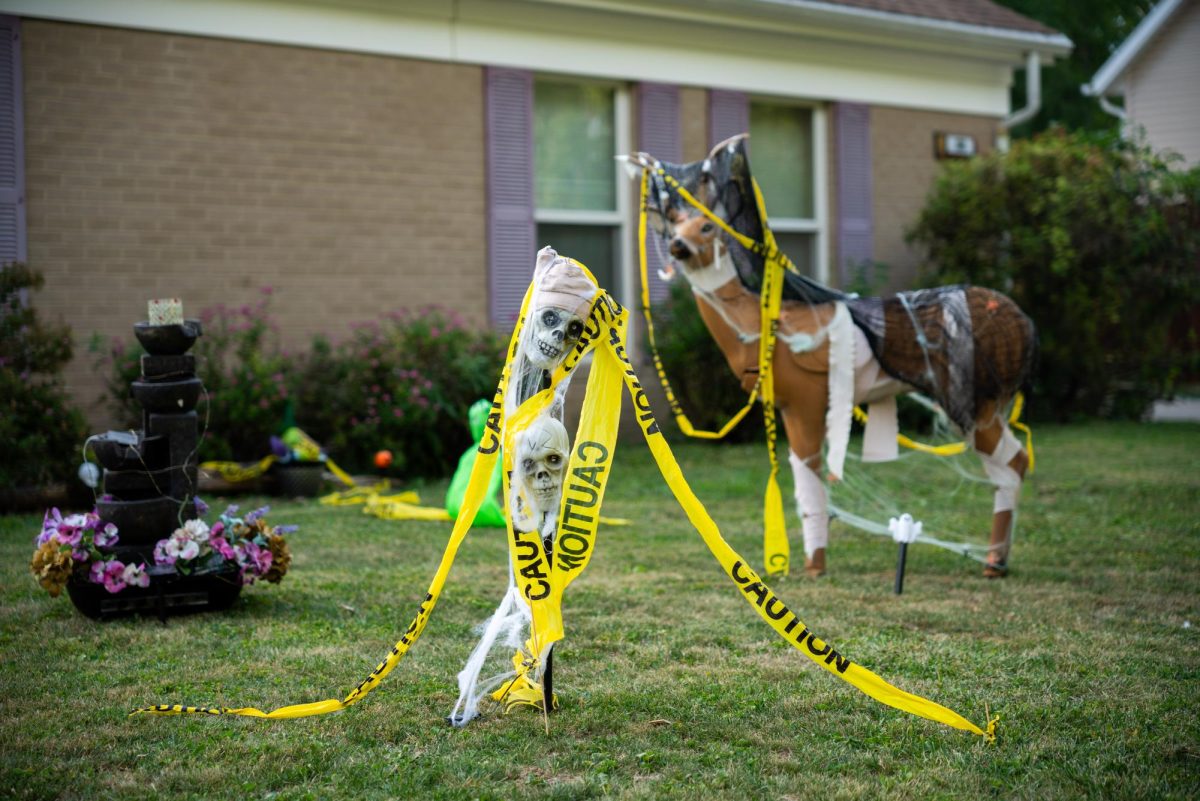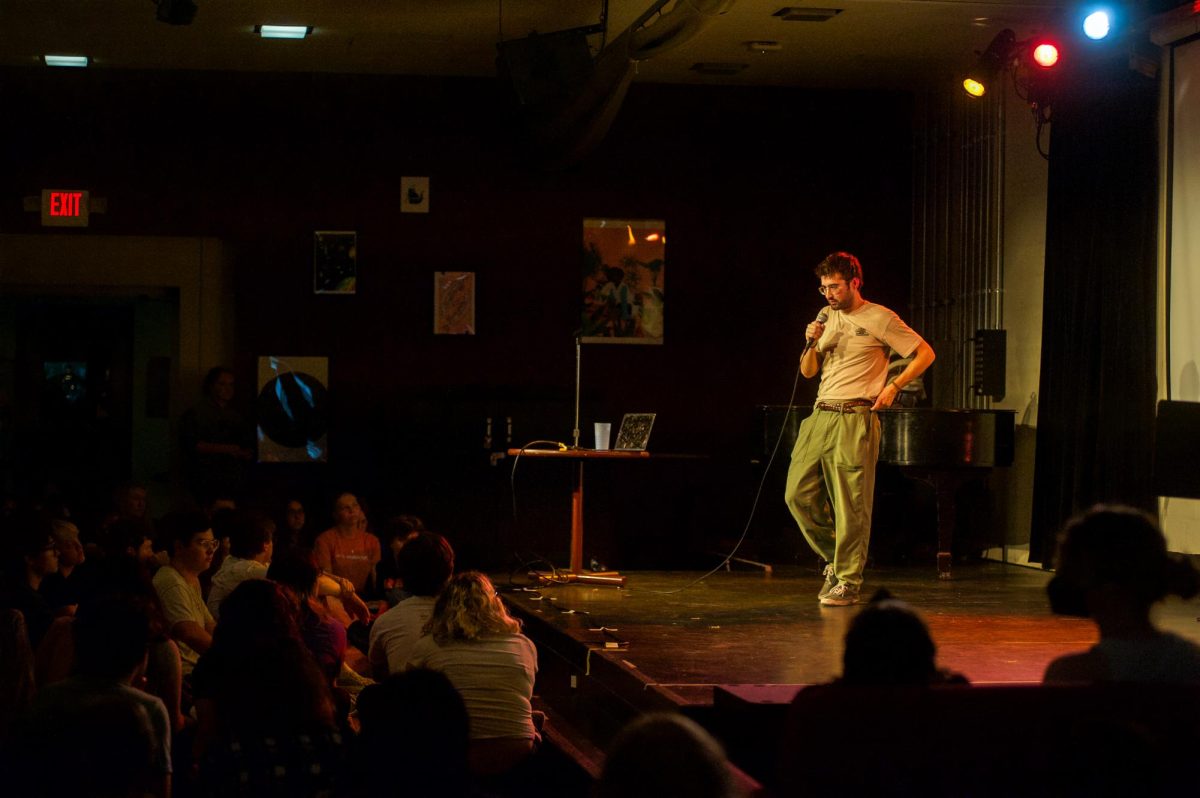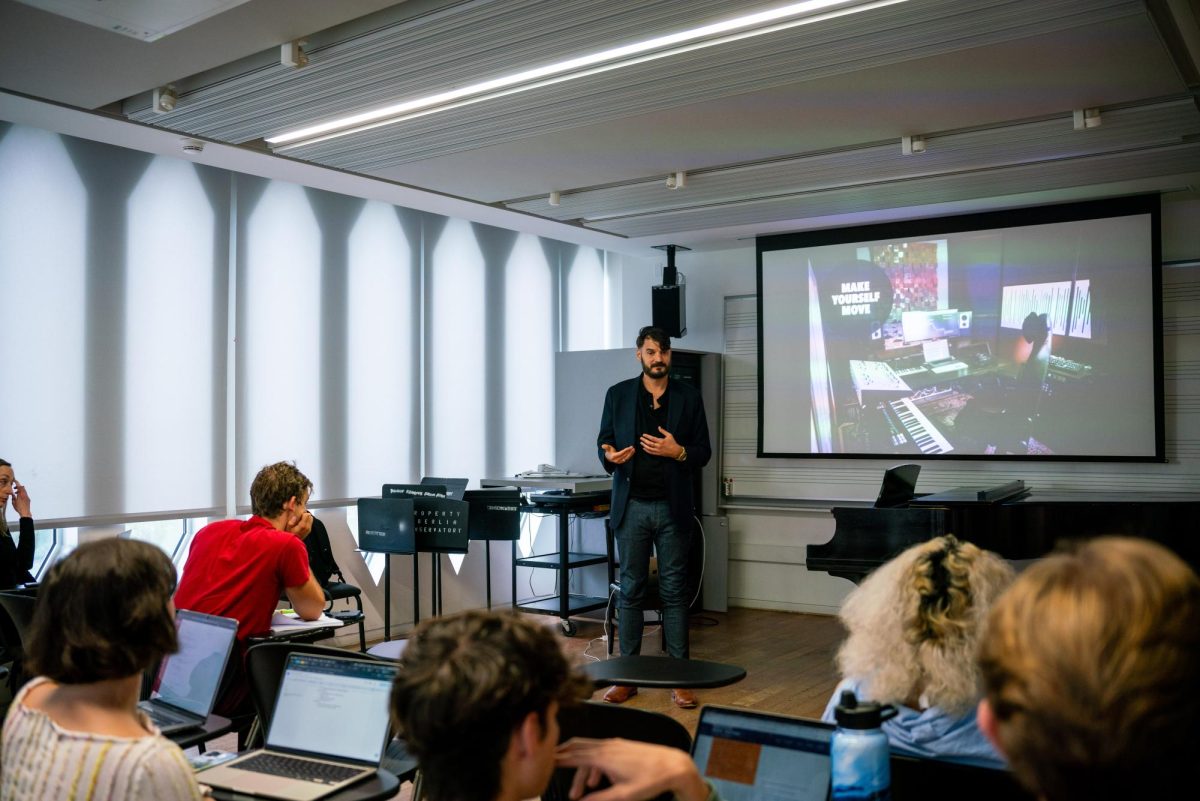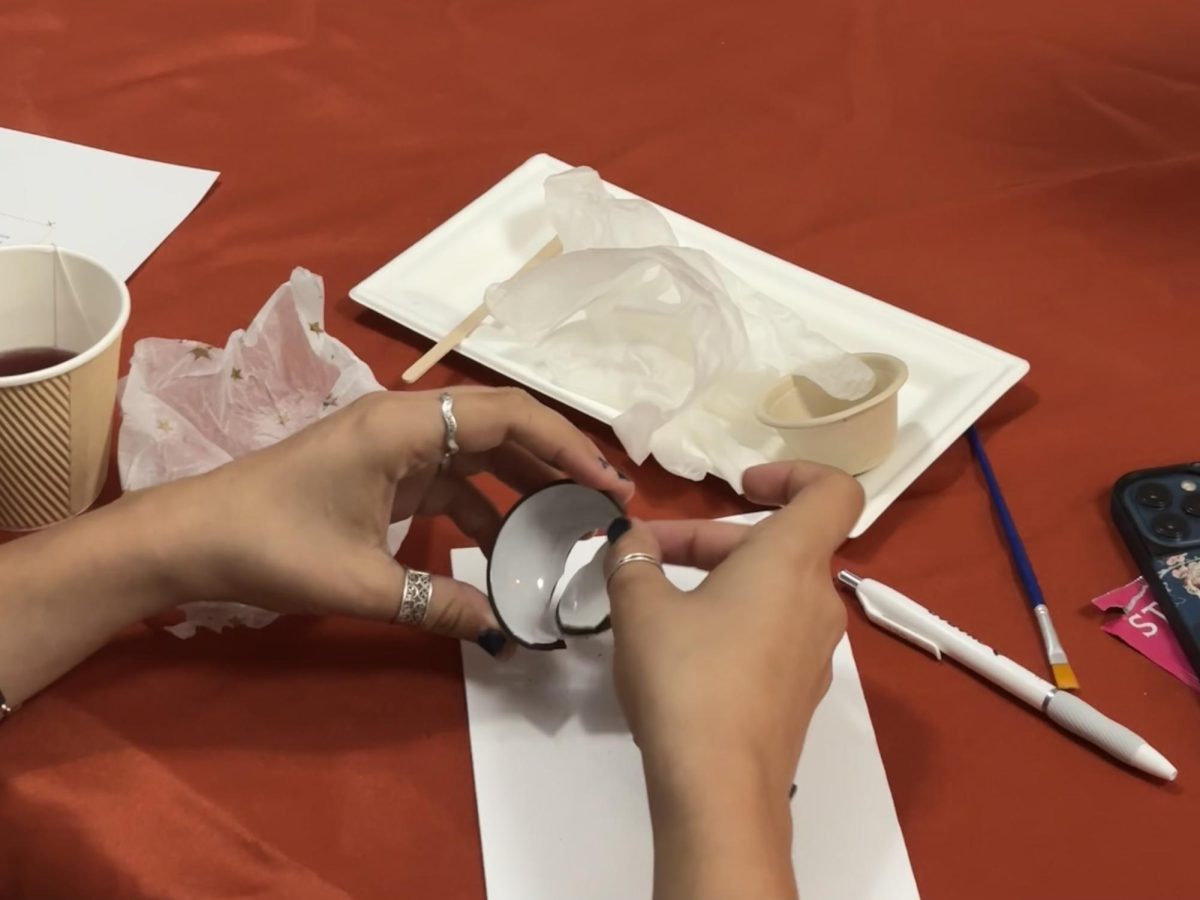Last Tuesday, the Oberlin Office of Religious and Spiritual Life sponsored a program to invite Hoodoo expert Nyx Roberts to speak at Afrikan Heritage House. His talk, “Demystifying Hoodoo,” was well-received by the students gathered in Lord Lounge. Roberts intimately worked to break down the intricacies and misconceptions of Hoodoo, introducing many to the origin and practices of this traditional African spiritual practice.
With five years of experience as a professional Hoodoo practitioner, Roberts has been heavily invested in the practice since feeling unfulfilled by Christianity during high school. They decided to turn to the religion of their ancestors for the spiritual connection that they were lacking. Roberts explained that Hoodoo is a traditional African spiritual practice that sometimes intersects with Black Christianity. It focuses on herbalism, connection to the earth, and communication with one’s ancestors and spirits. In Western media, it is often associated with altars, candles, and offerings to the spirits and ancestors. However, Roberts revealed in his talk that there is so much more than just that.
While many traditional African spiritual practices and cosmologies include deities or orishas, Roberts revealed that Hoodoo prioritizes connection with ancestors and keeps in mind the spiritual power of the natural world. They emphasized the importance of recognizing the cultural diversity within the world of traditional African religions.
“When we see our spiritual compositions in Hoodoo, it does not look the same for everyone because everyone does not have the same ethnic background,” Roberts said. “There are aspects of each ethnic group that we come from that can assist you in comprising your specific path in your journey.”
Hoodoo remains distinct from, but related to, many African spiritual practices.
“We might not have held onto specific names or titles [of deities], but everything is still intact because everything is influenced through nature itself,” Roberts said.
Roberts also talked about the importance of Hoodoo, specifically how the African-American experience shapes its structure. As it reached the U.S. during the slavery era, the institution of slavery made various impacts on the practice.
“It is the heaviest portion of our history that shows us the structure of Hoodoo and how it has transformed over time,” Roberts said. “It started off as a way of survival, a way of maintaining our cultures and traditions as African people.”
Roberts mentioned that Hoodoo continues to thrive in communities like Black churches, Black fraternities, and Historically Black Colleges and Universities.
“Those were also major places for Hoodoos to congregate because those were places where secrecy could be held,” Roberts said. “Another problem that we have is misappropriation of our culture by white people. We have a lot of people who have the understanding that Hoodoo is simply a tradition of candle, oils, powders, and folk magic, when that is nowhere near the truth.”
The entire room reacted affirmatively, recognizing the pervasive misunderstanding of the culture as nothing more than its aesthetics.
Roberts invited the LGBTQI+ community specifically into the picture.
“Hoodoo is a space for LGBTQI+ — period,” they said. “There is no space for homophobia. There is no space for transphobia. There is no space for any of that. Having an understanding of the LGBTQI+ community is integral in your understanding of Hoodoo. One of its biggest aspects is resistance, and our resistance movements have been led heavily by this community. To truly get the full story and to understand everything that goes on within our spiritual frame, you also have to invest your time into that community.”
Similarly, they discuss how Hoodoo deemphasizes class division.
“This is a place that’s dedicated to the poor as well as the rich,” Roberts said. “Understand your spiritual guide. I have spirits who can barely speak English and were farmers, and I also have spirits who were elitists and were in the highest of places. That is the history of African Americans. We need to understand that we don’t just have a history of slavery, oppression, and just being farm hands. We were also people who were in very high places.”
Many students stuck around to express their thanks to Roberts for their powerful words. Roberts similarly expressed gratitude for being able to share their expertise and the spiritual prosperity that they have experienced. They encourage African Americans of all walks to embrace and find power in that unique tradition and connect with their ancestors.
“We are a tradition of song,” Roberts said. “We are a tradition of dance. We are a tradition of color. We are a tradition of hair and style. We are a tradition of music, all types of things.”


